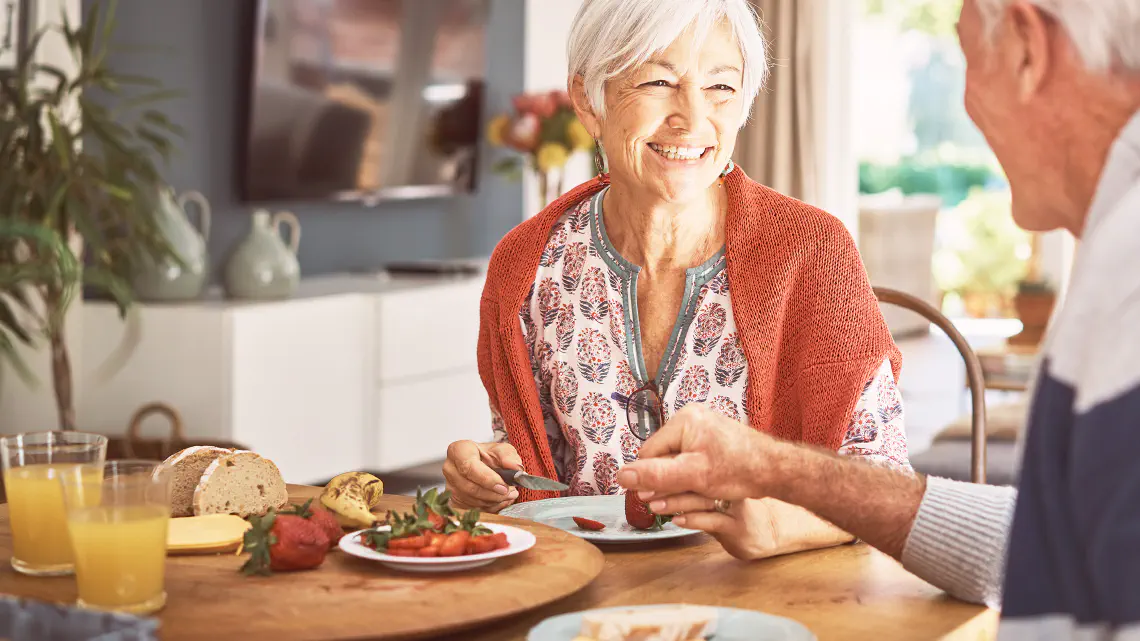We all know we should be eating our 5 a day, but did you know different food groups all have their part to play in our overall health? Recent studies have highlighted nutrition can even impact the progression of certain diseases. Here’s our top list of do’s and don’ts for good nutrition in Parkinson’s. Remember to talk to your healthcare professional before making any changes to your diet.
Good nutrition and staying active go hand-in-hand in helping people with Parkinson’s lead healthier lives. Find out how our wearable cueing device, gaitQ tempo™, can help keep you mobile whether you want to cook up a storm in the kitchen or walk to the local shops to buy groceries.
Do’s:
- Adopt a high fibre diet, with plenty of fruits, vegetables and whole grains.
This supports overall health and may help to ease constipation - a common occurrence for people with Parkinson’s.1 - Drink plenty of water.
Keeping up fluid intake is especially important for people with Parkinson’s as dehydration can worsen their symptoms. The NHS advises all adults should aim to drink 6-8 glasses of water a day.2 - Include essential fats in your diet.
Fats found in olive oil, avocados and fatty fish can support overall cardiovascular health and there is research to suggest a relationship between essential fats and improved cognitive wellbeing.3 - Take a vitamin D supplement.
Low bone density is prevalent among people with Parkinson’s and vitamin D is known to help improve this. While this nutrient is found in oily fish, red meat and egg yolks, the majority of vitamin D intake comes from sunlight on our skin. However, during autumn and winter NHS guidance is for everyone to take a vitamin D supplement.4 - Consider moderate caffeine consumption.
Some studies suggest that caffeine may have neuroprotective effects in Parkinson’s. However, remember moderation is key and avoid caffeine intake in the evening to reduce impact on sleep.5
Don’ts:
- Try not to consume alcohol in excess.
While moderate alcohol consumption may be acceptable for some, excessive alcohol could contribute to further health problems and may interfere with medications prescribed for Parkinson’s.6 - Try to avoid foods high in sugar or saturated fats.
This can reduce the risk of heart-related issues and also avoid unintended weight gain if a person with Parkinson’s is less mobile.17 - Try to reduce salt and sodium intake.
This can help manage high blood pressure which is a risk factor for various health issues. However, a reduction in salt intake is not recommended for those with low blood pressure.1
Remember to consult with a healthcare professional or a registered dietitian before making changes to your diet. They can also help to create a personalized nutrition plan tailored to your specific needs and health conditions, including Parkinson’s.
